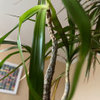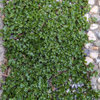Nicotine sulphate/Blackleaf 40 source?
rredbbeard
15 years ago
Featured Answer
Sort by:Oldest
Comments (15)
jean001
15 years agoKimmsr
15 years agoRelated Professionals
Newcastle Landscape Architects & Landscape Designers · Aurora Landscape Contractors · Alamo Landscape Contractors · Dallas Landscape Contractors · Dallas Landscape Contractors · Dunwoody Landscape Contractors · Fuquay-Varina Landscape Contractors · Hurricane Landscape Contractors · La Verne Landscape Contractors · Plymouth Landscape Contractors · San Rafael Landscape Contractors · Stony Brook Landscape Contractors · University City Landscape Contractors · Vacaville Landscape Contractors · Shenandoah Landscape ContractorsKimmsr
15 years agobb20110108_celts_kennedycatholic_ne
13 years agotaxus_man
13 years agorhizo_1 (North AL) zone 7
13 years agoirisola1225
6 years agorredbbeard
6 years agogardengal48 (PNW Z8/9)
6 years agodavidrt28 (zone 7)
6 years agokimmq
6 years agoJoseph Donahue
3 years agotsugajunkie z5 SE WI ♱
3 years agoJoseph Donahue
3 years ago









rredbbeardOriginal Author